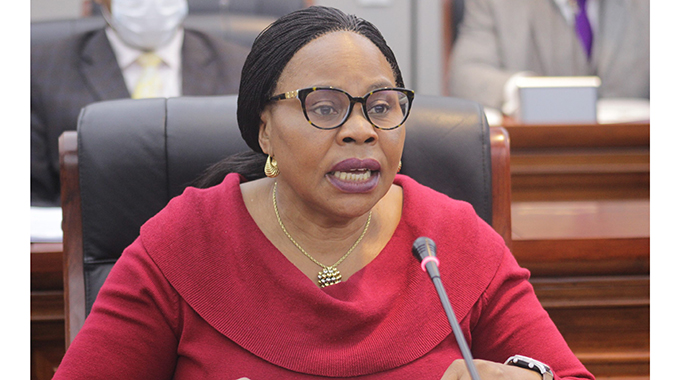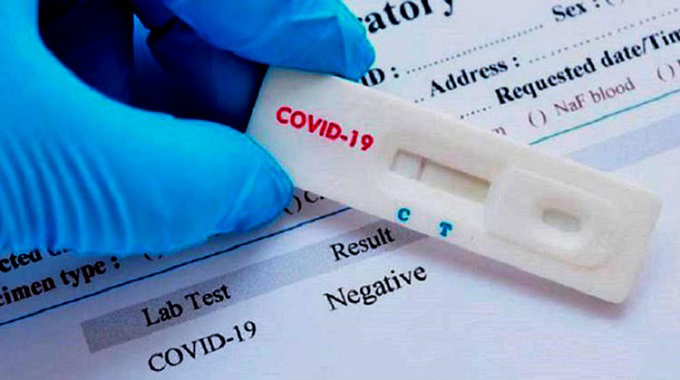Govt’s media reforms aim to create a conducive business environment-Cabinet Minister

Ray Bande in MUTARE
GOVERNMENT is working towards digital inclusivity in order to address the urban-rural, poor-rich divide, a Cabinet Minister has said.
In her keynote address during the Parliamentary Portfolio Committee on Information workshop on the proposed Media Practitioners Bill, Media and Broadcasting Services workshop in Mutare today Minister Mutsvangwa said:
“By the end of the day, there has to be total digital inclusivity. The urban-rural, poor-rich divide has to be fully addressed. The goal being to realise seamless connectivity for every citizen.
“The internet of both human beings and things will strive to deliver all sorts of gadgetry to the populace. Be it cellphones, notebooks, laptops, tablets, set top boxes, intelligent household appliances, and even self-driving cars.
“That way, we will ensure that every Zimbabwean is truly a national as well as global citizen in a digitally interlinked world of goods, services and ideas. This is a stupendous assignment before all of us. It demands a fully engaged national legislature.”
Minister Mutsvangwa said: “This past month we officially launched the Zimbabwe Digital Broadcasting Migration Project (DDT Project) in Magunje, Karoi. The previously marginalized communities that did not have local radio and television signal now have access.
“We also distributed over 300 set top boxes which households will use to connect to local airwaves. All goes to show that the Second Republic means business when it comes to guaranteeing equal access to information and other media freedoms.”
Minister Mutsvangwa said the Government is seized with media reforms in order to create a conducive business environment for the media.
“The Second Republic has forged ahead with media reforms, creating a more conducive business environment for the media. Journalists are now able to work freely; we have accredited those who had been previously black-listed.
“Notable was the repealing of AIPPA (Access to Information and Protection of Privacy Act). We replaced it with the Freedom of Information Act and the Zimbabwe Media Commission Act.
“We are determined to increase access to information. A total of six free to air television stations have been licensed; six community radio stations have also been licensed; several tertiary institutions have also been licensed to operate as campus radio stations.”
She urged media practitioners to execute their duties responsibly.
“As we discharge our part as Government, we also expect the media to effectively and efficiently play its role for the realisation of the goals and aspirations of the Zimbabwean people.
“A credible media has to take responsibility for getting its facts right. That means digging deep, talking to a wide range of people to get the different sides of the story and checking the facts rigorously.
“It should not hesitate to root out and expose lies, hypocrisy and corruption, equally it has to be sure of its facts before publishing. Credibility also means avoiding exaggeration or scare-mongering in order to sell more newspapers through sensationalism. Stories based on rumours or sourced from someone who may have an axe to grind eventually drives away readers, listeners and viewers.
“Being responsible not only means telling the truth, but also abiding by the law and being honest in the way a journalist gathers information. If the press drifts into law-breaking, then it loses the respect of its readers, viewers and the nation,” she said
Minister Mutsvangwa outlined the vices of social media and urged media practitioners to help give the correct version of every story.
“In this age of social media, misinformation has become the order of the day and it is the duty of professionals in the media sector to provide correct information.
“Through social media, information can be spread by a few clicks of a button, whether it is true, false, mere speculation or even gossip. Social media can manipulate, influence, persuade and pressurise society, along with even controlling the world at times in both positive and negative ways;
“One needs to follow the ongoing hiatus of President Buhari of Nigeria and ex-President Trump over Twitter. Clearly, ethical media practitioners are needed now more than ever,” she said
Speaking during the same function permanent secretary in the Information, Publicity and Broadcasting Services Mr Nick Mangwana said:
“The issue of accreditation of journalists has been debatable in various forums. Let it be known that media practitioners need accreditation more than Government needs them accredited. They want to use that accreditation to navigate smoothly, without hassles, within their line of work.
“Some learned friends in the legal fraternity once came to my office saying the process of accreditation of media practitioners is not independent from Government interference. They argued that the role played by the ministry is tantamount to interference.
“But as we see it, our role is coordinating when it comes to operations or accreditation of media practitioners. At the end of the day, it is our Minister who is accountable to Parliament or any other legislative body when it comes to operations of ZMC and other agents.”










Comments